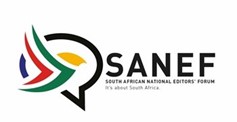
03 May 2024
The South African National Editors’ Forum (SANEF) joins the world media fraternity in commemorating Press Freedom Day under the theme: “A Press for the Planet: Protecting Journalists and Scientists in Defence of the Environment.”
SANEF notes the clarion call made by UNESCO that in 2024, World Press Freedom Day should be dedicated to the importance of journalism and freedom of expression in the context of the current global environmental crisis.
Sadly, South Africa has this year slid down in the World Press Freedom index to 38th place. Last year, 2023, it was in place 25. The reasons given are that the economic indicators brought are the reasons for the drop.
According to UNESCO, awareness of all aspects of the global environmental crisis and its consequences is essential to build democratic societies. Journalistic work is indispensable for this purpose.
We note that journalists encounter significant challenges in seeking and disseminating information on contemporary issues, such as supply-chain problems, climate migration, extractive industries, illegal mining, pollution, poaching, animal trafficking, deforestation, or climate change. Ensuring the visibility of these issues is crucial for promoting peace and democratic values worldwide.
SANEF reiterates its urgent appeal to protect journalists in Gaza. According to the Committee to Protect Journalists (CPJ), as of May 1, 2024, CPJ’s preliminary investigations showed at least ninety-seven journalists and media workers were among the more than 35,000 killed since the war began on October 7—with more than 34,000 Palestinian deaths in Gaza and the West Bank and 1,200 deaths in Israel. It noted that of ninety-seven journalists and media workers confirmed dead, ninety-two were Palestinian, 2 Israeli, and 3 Lebanese.
We also call upon the media in the country to uphold their media code principles of fairness, balance, and accuracy as they report the events before, during, and after the 2024 elections in the country.
SANEF has partnered with various academic and media freedom stakeholders to host seminars today, Friday 3rd May, to debate relevant topics in the celebration of the country’s 30 years of democracy and press freedom. World Press Freedom Day provides the perfect platform to celebrate progress and forge deeper collaboration to achieve the goal of a Free Press that values linguistic diversity.
- In Cape Town, we invite journalists and interest groups for an online seminar where the Press Council, SANEF, the University of Western Cape, and the Indigenous Languages Action Forum will discuss the significance of linguistic diversity in the South African media landscape. This is a result of recent translations of the Press Code into isiZulu; isiXhosa; Sepedi; Tsonga and Tshivenda and underscores the ongoing pursuit of linguistic inclusivity within the South African media landscape.
- In the Eastern Cape, SANEF is working with the universities of Rhodes and Nelson Mandela, the Daily Dispatch, and the Herald to host a seminar discussing the State of Newsrooms in South Africa, three decades into democracy as newsrooms shrink and the ability to cover a wide variety of topics is proving to be more difficult.
- In KwaZulu Natal, SANEF partnered with the Durban University of Technology to host a seminar at the university’s city campus to debate the theme: ‘A press for the Planet, Journalism in the face of environmental crises.
In the context of the world’s triple planetary crisis — climate change, biodiversity loss, and air pollution — UNESCO has argued that dis-/misinformation campaigns challenge knowledge and scientific research methods. Attacks on the validity of science pose a serious threat to pluralistic and informed public debate. Indeed, misleading, and false information about climate change can, in some cases, undermine international efforts to address them.
SANEF believes that dis-/misinformation about environmental issues can lead to a lack of public and political support for climate action, effective policies, and the protection of vulnerable communities affected by climate change as climate change tends to exacerbate existing inequalities.
Note to Editors:
The South African National Editors’ Forum (SANEF) is a non-profit organisation whose members are editors, senior journalists, and journalism trainers from all areas of South African media. We are committed to championing South Africa’s hard-won freedom of expression and promoting quality, ethics, and diversity in the South African media. We promote excellence in journalism through fighting for media freedom, writing policy submissions, research, and education and training programmes. SANEF is not a union.
For more information please contact:
Sbu Ngalwa – SANEF Chairperson (073) 404-1415
Nwabisa Makunga – SANEF Deputy Chairperson (082) 555-1972
Prof Glenda Daniels – SANEF Secretary-General (083) 229-9708
Tshamano Makhadi – Treasurer-General (082) 223 0621
Makhudu Sefara – SANEF Media Freedom Chair (079) 177-2134
Katy Katopodis – SANEF Wellness and Safety Chair (082) 805-7022
Judy Sandison – SANEF KZN Convenor (082) 571-3334
Heather Robertson – SANEF Gauteng Convenor (083) 3085618
Rochelle De Kock – SANEF Eastern Cape Convenor (072) 969-8028
Asanda Ngoasheng – SANEF Western Cape Convenor (082) 610 9374
Reggy Moalusi – SANEF Executive Director (071) 682-3695
Twitter: @SAEditorsForum
Email: [email protected]
Website: www.sanef.org.za


